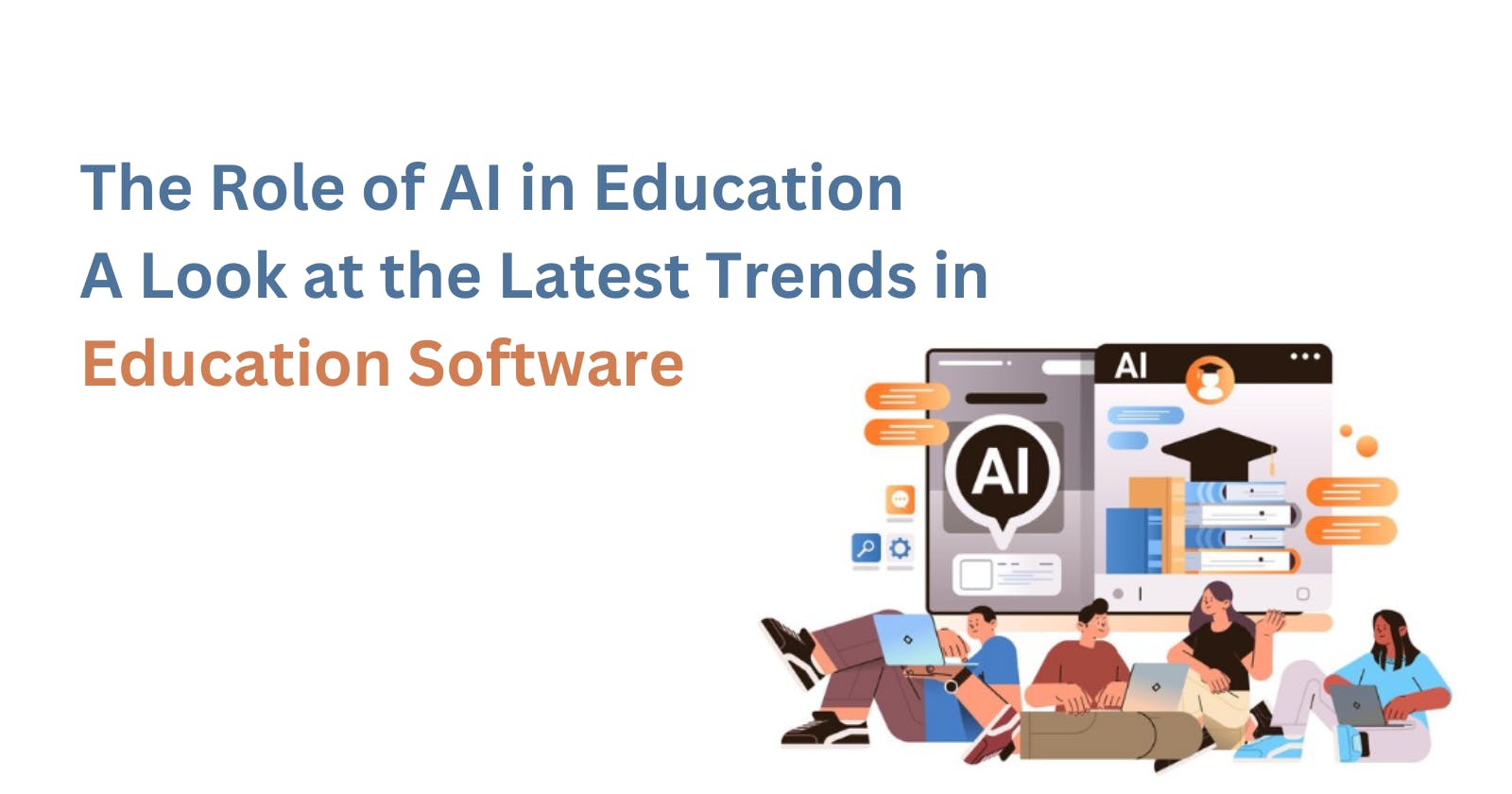The Role of AI in Education : A Look at the Latest Trends in Education Software
Introduction
In recent years, the integration of artificial intelligence (AI) in education software has revolutionized the way students learn and teachers instruct. Educational software, designed to facilitate learning and improve educational outcomes, has seen a significant shift towards AI-powered solutions. This article explores the various trends and advancements in education software, focusing on the role of AI in shaping the future of education.
What is Educational Software Used For?
Educational software encompasses a wide range of digital tools and platforms designed to facilitate teaching and learning processes. These software solutions cater to diverse educational needs, from early childhood education to higher education and professional development. They offer interactive lessons, simulations, assessments, and collaboration features to engage learners effectively.
In classrooms, educational software serves as a supplement to traditional teaching methods, providing teachers with resources to personalise instruction, track student progress, and create immersive learning experiences. Beyond the confines of physical classrooms, online education software enables remote learning, offering flexibility and accessibility to learners worldwide.
These software tools are used for various purposes, including:
Interactive Learning: Educational software provides interactive and engaging learning experiences for students, making learning more enjoyable and effective.
Personalized Learning: AI-powered educational software can analyze students' learning patterns and preferences to deliver personalized learning experiences.
Assessment and Feedback: Educational software enables teachers to create assessments, track student progress, and provide timely feedback to improve learning outcomes.
Collaboration: Some educational software facilitates collaboration among students, allowing them to work together on projects and assignments.
Teacher Support: Educational software can assist teachers in lesson planning, classroom management, and student assessment.
Role of AI in Education
Artificial Intelligence (AI) plays a significant role in education, transforming various aspects of teaching, learning, and administration. AI can assist teachers in creating personalized lesson plans, computing grades, and providing personalized help to students. AI-powered systems can evaluate students' progress, provide targeted feedback, and identify areas where students need improvement. AI can also enhance student engagement and motivation by employing gamified learning and interactive teaching approaches
AI can help reduce the cost of education by automating tasks, such as administrative tasks, freeing up human educators to focus on more valuable tasks. AI-enabled educational technology can adapt to each student's English language abilities, strengths, and learning process, providing powerful forms of adaptivity and enhancing feedback loops. AI can also support educators by enabling them to design AI-enabled tools that make their jobs better and more efficient.
However, AI in education also has potential downsides. The overreliance on AI can dehumanise the learning experience, with AI algorithms generating content and deciding the pacing of lessons. There are concerns that the advancement and adoption of AI could impact the need for certain job roles in education, potentially leading to job loss.
To ensure the responsible use of AI in education, the U.S. Department of Education Office of Educational Technology recommends emphasising humans in the loop, aligning AI models to a shared vision for education, and designing using modern learning principles. AI should be used to support and enhance human teaching and learning, not replace it. By working together, educators, policymakers, and technologists can ensure that AI is used effectively, safely, and fairly in education.
AI Developers and the Future of Education Software
AI developers play a crucial role in shaping the future of education software, particularly in the realm of online education. The software approach in educational technology is increasingly reliant on Artificial Intelligence (AI) to enhance learning experiences and streamline administrative tasks. AI's role in education spans various key areas, including personalized learning, tutoring, grading, and administrative automation.
By leveraging AI, developers can create online education software that adapts to individual student needs, provides tailored support, automates tasks like grading, scheduling, and facilities management, and offers a more efficient and effective educational experience overall.
In essence, AI is revolutionizing education software by enabling a more personalized, inclusive, and adaptive learning environment for students while assisting educators in delivering high-quality education efficiently.
Conclusion
The integration of AI in education software represents a significant advancement in the field of education. By using AI technologies, developers of education software can develop creative solutions that improve the teaching and learning experience for both students and teachers. As AI progresses, its role in education is anticipated to expand, resulting in more personalized, adaptive, and efficient education software solutions.

